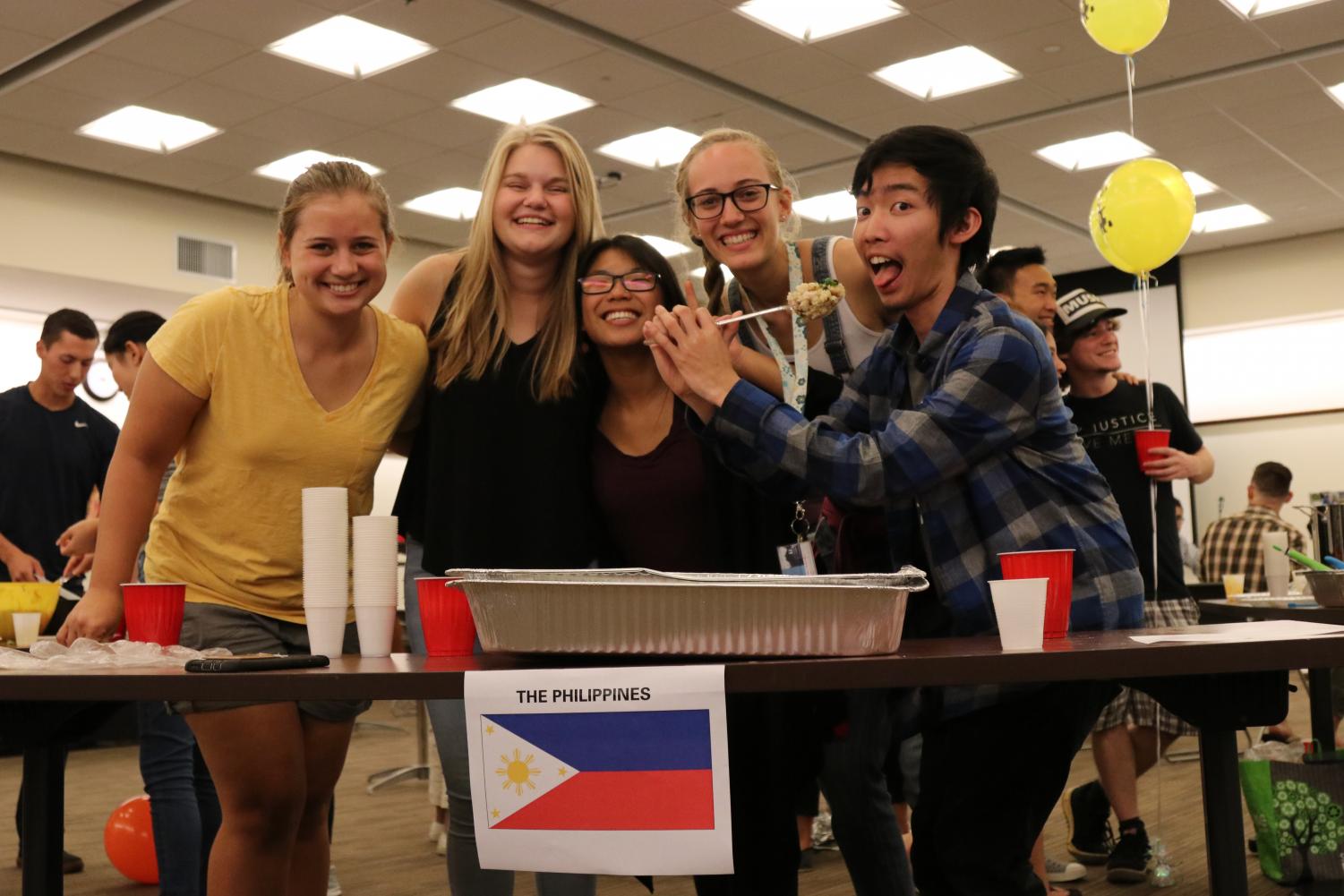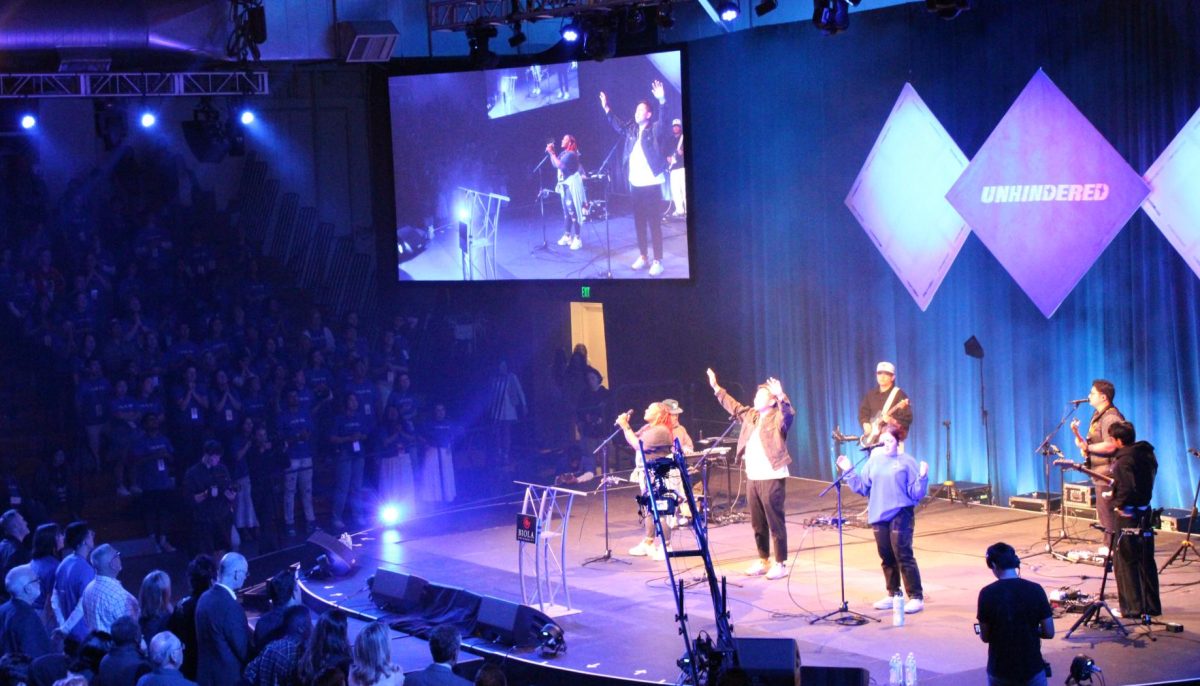On Oct. 6, Andrews Banquet Room transformed into a small-scale globe as local and global students mingled over pupusas and rice dishes from El Salvador, the Democratic Republic of Congo, Chile and the Philippines.
Meet the Neighbors is an annual Global Student Programs and Development event where community groups are assigned a random country to research, cook and serve a course for a cooking contest. All Biola students were invited to attend the global feast, socialize over the universality of food and vote for their favorite dish.
GSPD community care coordinator Laura Webster believes that Meet the Neighbors serves two main purposes. The first is to make community groups more visible within the GSPD community through representing and serving culture on a plate. The second is to provide a welcoming space for students outside of GSPD.
“Food is such a connecting thing and people love food and everyone eats it and everyone has different values around it and different experiences with it, and so by having this event, we want people to feel more comfortable to come and enjoy good food, but then also see what it’s like being part of an international community,” Webster said.
Community groups intern and El Salvador booth server Golestu Mohebiravesh believes that the cooking competition is an effective means to raise global awareness, make connections and grow as a community group. However, she says there is much more to Meet the Neighbors regarding the hope of uniting people and cultivating diversity.
As an Iranian born and raised in America, Mohebiravesh credits GSPD for encouraging her to embrace her multicultural identity.
“It’s still so important to keep your roots and be strong and be proud of them and work them into your work and your friendships and your relationships,” Mohebiravesh said.
She wants to further encourage both local and global students to have relational encounters without preconceptions or stereotypes.
“You string yourself to that person when you try to understand their story,” Mohebiravesh said.









